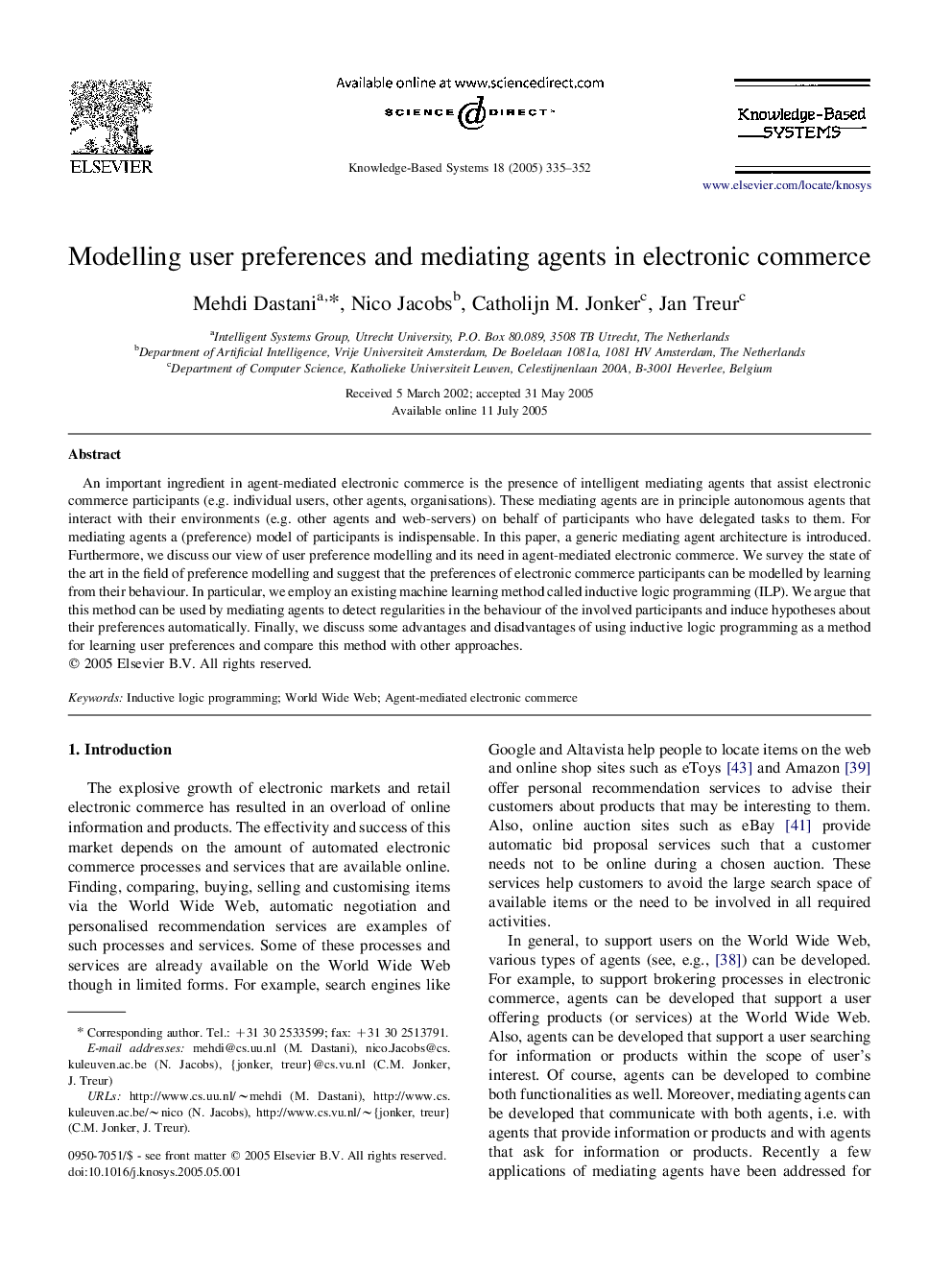| Article ID | Journal | Published Year | Pages | File Type |
|---|---|---|---|---|
| 10325935 | Knowledge-Based Systems | 2005 | 18 Pages |
Abstract
An important ingredient in agent-mediated electronic commerce is the presence of intelligent mediating agents that assist electronic commerce participants (e.g. individual users, other agents, organisations). These mediating agents are in principle autonomous agents that interact with their environments (e.g. other agents and web-servers) on behalf of participants who have delegated tasks to them. For mediating agents a (preference) model of participants is indispensable. In this paper, a generic mediating agent architecture is introduced. Furthermore, we discuss our view of user preference modelling and its need in agent-mediated electronic commerce. We survey the state of the art in the field of preference modelling and suggest that the preferences of electronic commerce participants can be modelled by learning from their behaviour. In particular, we employ an existing machine learning method called inductive logic programming (ILP). We argue that this method can be used by mediating agents to detect regularities in the behaviour of the involved participants and induce hypotheses about their preferences automatically. Finally, we discuss some advantages and disadvantages of using inductive logic programming as a method for learning user preferences and compare this method with other approaches.
Related Topics
Physical Sciences and Engineering
Computer Science
Artificial Intelligence
Authors
Mehdi Dastani, Nico Jacobs, Catholijn M. Jonker, Jan Treur,
